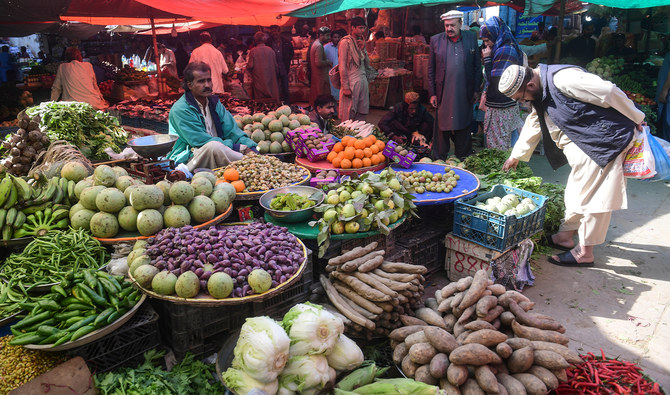ISLAMABAD: Pakistan's weekly inflation increased to 42.68 percent on a year-on year basis in the week ending on Dec. 7, the country's statistics bureau reported on Friday.
The weekly inflation, or the sensitive price indicator (SPI), is computed to assess the price movement of essential commodities at a shorter interval of time so as to review the price situation in the country.
The SPI comprises 51 essential items collected from 50 markets in 17 cities of the country.
"During the week, out of 51 items, prices of 15 (29.41%) items increased, 14 (27.45%) items decreased and 22 (43.14%) items remained stable," the Pakistan Bureau of Statistics said in its summary.
"The year-on-year trend depicts increase of 42.68%."
The SPI for the current week increased by 1.16 percent, according to the PBS.
A major increase was observed in prices of onions (8.42%), eggs (2.52%), electricity charges for Q1 (2.03%), pulse moong (0.88%), sugar (0.84%), bananas (0.67%), firewood (0.55%), LPG (0.42%), tea prepared (0.37%), pulse masoor (0.10%), mustard oil (0.09%) and curd (0.02%).
The commodities whose prices decreased included tomatoes (9.82%), potatoes (4.34%), chicken (2.99%), tea Lipton (2.58%), diesel (2.31%), rice basmati broken (2.00%), vegetable ghee 2.5 KG (0.43%), cooking oil 5 liter (0.38%), wheat flour (0.35%), pulse gram (0.27%) and vegetable ghee 1 KG (0.16%).












